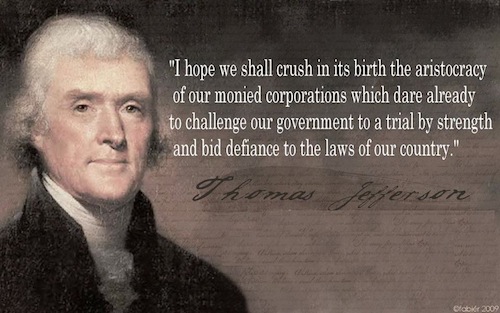For a publication staffed entirely by nerds, the New York Review of Books sure is fired up about democracy. Their coverage of Occupy Wall Street is far better than that of any traditional news outlet—by comparison, the Times appears to have closed its office in New York—and their vituperation of Super PACs is only slightly less comprehensive. This weekend, Elizabeth Drew published this consideration of whether the 2012 election can possibly be fair. “Will the presidential election reflect the will of the people?” she asks, presumably rhetorically. She follows with a more important question: “Will it be seen as doing so—and if not, what happens?”
America is a consent-of-the-governed operation. We submit to the vagaries of electoral democracy even when we disagree with the results—even when the results are demonstrably stupid—because we believe in the integrity of the system. The belief is more important than the integrity. In his now-infamous majority opinion in Citizens United v. FEC, Anthony Kennedy argued that because Super PACs were required to operate independently from campaigns, they would “not give rise to corruption or the appearance of corruption.” Anthony Kennedy is a stupid man. But even he was smart enough to know that the appearance of corruption would scuttle the whole ship.
Here it should be noted that we have no way of knowing if elections are real. Ballots are secret and election supervisors are not disconnected from the world of politics. It is conceivable that voting is a ritual act of allegiance to a system that does not actually count our votes, as when John Kerry won the exit polls but the actual election went to the President whose dad was President and whose brother governed the state that hosted the last election controversy. But that can’t be true, because it is too depressing to even think about.
It also doesn’t feel true. National election conspiracies are not the subject of serious thought for reasons of Occam’s Razor: a country that could organize people on such a large scale wouldn’t need a government. Experience teaches us that corruption is not organized. Corruption happens when individual people disregard individual conscience, and it tends to be atomized even when it is widespread—you know, like atoms. There is a difference between a corrupt system and a conspiratorial system. The 2012 election does not feel like a conspiracy, because those corrupt bastards seem sincerely to be trying to destroy one another.
So the question of whether the 2012 election will be fair is not the same as whether a pro wrestling match is fair. The outcome does not feel ordained. Yet this year’s campaign feels questionably fair the way a polo tournament is unfair: it’s not the spirit of competition we’re worried about, but who is allowed to participate. Elections are for us. Our democratic government taxes us and arrests us and takes away our gas-powered potato gun, but every four years it checks in to make sure everything is okay. We are asked to choose among leaders whose lives are increasingly alien to most Americans, but the fact that they bid for our admiration—all of us, en masse—makes them feel like one(s) of us.
It is the erosion in the number of us involved that frightens Elizabeth Drew. Super PACs are an affront because they introduce money to the process on a scale that obviates individual contribution; I could give my rent check to the Romney campaign every month and still not live long enough to match the Gingrich contribution made by Sheldon Adelson. But the mountain is eroding at its base, too.
Since the 2010 elections, 15 states have considered laws making it more difficult to vote. Eight of them adopted laws requiring photo identification—something that students, poor people (read: ethnic minorities) and the elderly are less likely to have. Texas invalidated student IDs as identification with the same law that validated concealed-carry permits. All of these states have Republican governors. Engage your stereotyping machine and ask yourself how the following people are likely to vote: college student, gun owner. Now ask what the purpose of this new voting law might be.
Since the last presidential election, it is harder to vote and easier to spend money on campaigns. Whether that amounts to an unfair system is debatable. I personally reject the argument that voting is bullshit, because it indulges our laziness, our desire to absolve ourselves of responsibility for our own bad government by saying it isn’t really ours. But it is hard to argue that the 2012 election will be more fair than what we had in 2008. Maybe it is exactly the same amount of fair. Maybe it is incrementally less. The scary question is what—if we knew for certain that we enjoyed less democracy than we did four years ago—we would do about it.





Nice work. Important points.
I don’t really dispute that their underlying goal here is to favor conservative voting.
However, the reasoning behind the laws are sound. Student IDs are relatively easily forged, because there are as many different kinds of them as there are universities. On the surface, Texas probably based this on a goal of preventing fraudulent voting by illegal immigrants, which seems to me like the exact kind of concern they would have, whether or not it’s legitimate.
The CCP aspect is a bit of flag I guess, but logically not sound to point out. A CCP is a rigorous form of ID to acquire, and it’s only right that it should suffice as proof of citizenship. You can’t fault a law because it included a valid provision.
The number of voters disenfranchised by these ID Laws overwhelms the miniscule number of people willing to take the proven risk (people do get caught) of committing voter fraud. More and more the question I have for republican voters is: stupid or just pretending?